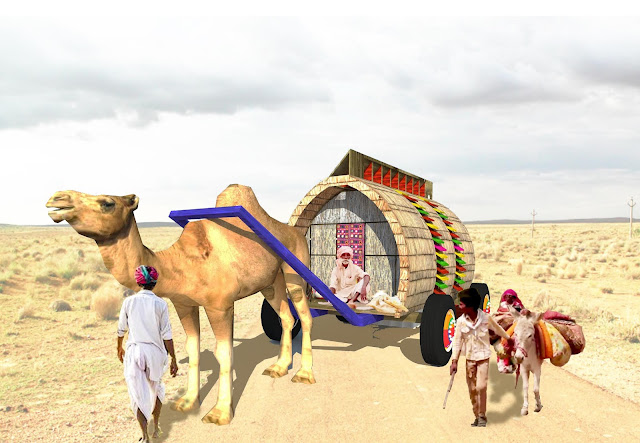"ख़ानाबदोश" HOUSE FOR KALBELIAS: THE NON-EXISTENT

Bombay61, Urbanists Authors: Ketaki Bhadgaonkar and Jai Bhadgaonkar ख़ानाबदोश HOUSE FOR KALBELIAS : 'The Non-Existent' Our entry for The Tiny House Competition 2017 (International Competition) organised by Volume Zero won an honorable mention among more than 100 entrants from all parts of the world. http://volzero.com/result/winners Map showing the migration of nomadic tribes across the world Kalbelias are a nomadic tribe of snake charmers known today for their dance of the same name. They are mainly found in the Western state of Rajasthan where over 75,000 of them live today. Like many nomads in India, they experience much discrimination and stigma which is increased by their traditional link to snakes. They often live in poor economic conditions. Being nomads, they do not have access to many government services such as health or education which require a permanent address or house. “Not all who wander are lost!” -J.R.R. Tolkien


